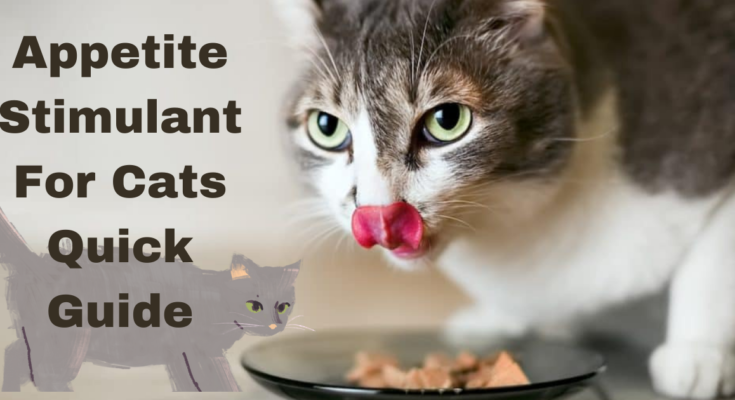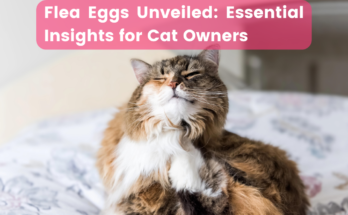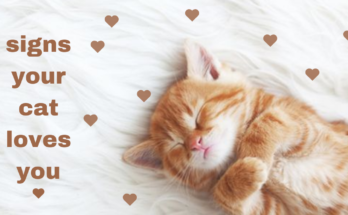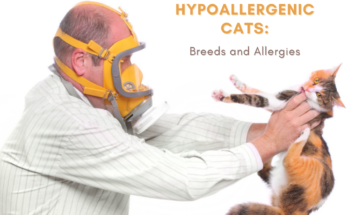If your cat has not been eating for more than 24-48 hours and is vomiting, having diarrhea, or experiencing lethargy, it is essential to seek veterinary care immediately. If you do not see any of these signs, there are plenty of natural appetite stimulators you can use at home to help your cat eat while you wait for a vet. Cats can sometimes lose their appetite because they are not enjoying their food. However, a medical condition should always consider if the loss of appetite lasts more than 24 hours, such as stress, dental issues, kidney problems, pain, environmental changes, pancreatitis, or cancer. Only a vet can tell you what is wrong with your cat and prescribe the proper treatment, including an appetite stimulant for cats. Here’s what you should know about prescriptions and natural appetite stimulators for cats.
Understanding appetite loss in cats
The first step in appetite stimulant for cats is knowing what might be inflicting the loss of urge for food. Common causes encompass strain, environmental modifications, and pain or illness. Cats must get balanced nutrients daily to ensure they get all the crucial vitamins their bodies need for their health.
A seriously depressed appetite or anorexia in cats is after they lose their appetite due to illness. Additionally, a few diseases will make the cat feel nauseous at some stage in ingesting. There is an affiliation between ingesting and nausea to bring about a lack of urge for food.
Common sicknesses that result in appetite loss in cats include:
- Kidney sicknesses, including chronic kidney disease
- Liver illnesses, which have hepatic lipidosis
- Pancreatitis
- Cardiovascular disease
- Nausea
- Pain
- Cancer
Let’s say that additional indications and symptoms, such as vomiting, tiredness, hiding, and so on, coincide with the desire for food loss. In that case, you must contact your veterinarian to be able to diagnose and deal with the underlying contamination.
A massive amount of daily moisture in cats happens from eating, whether or not it’s dry kibble or canned food. Therefore, regardless of the reason, inappetence in cats can and will bring about dehydration, and clinical dehydration will further reduce the urge for food in cats. It finally ends up being a vicious cycle of lowering power and health in cats.
While we advocate including toppers to increase palatability and stimulate the urge for food in cats, there is a hazard. There may be a behavioral factor wherein cats can quickly end up demanding to acquire the praise of more delicious and attractive foods. Soon enough, they discover ways to act so that it will receive their preferred treat!
Natural ways to stimulate appetite in cats
Here, we can cover the herbal ways to stimulate the urge for food in cats without resorting to medicinal drugs or different interventions. They work far better at encouraging cats’ appetites, yet occasionally, a scientific problem causes the cats’ appetites to drop.
Lure with delicious meals:
Cats are curious creatures and reply to sturdy aromas. Try luring your cat with some pieces in their favorite wet food or chunks of fresh tuna. You can also add low-sodium broth or tuna juice to the meals.
Provide variety:
A range in their meal plan can stimulate their appetite. Additionally, cats prefer buffet-fashion services a lot as compared to mixing ingredients. Offer distinctive textures (e.g., wet and dry meals) and flavors. Many foods can have exceptional canned meals to provide unique textures, including pate, loaves, chunks of gravy, etc. Many cats prefer one texture over another, so experimenting makes sense.
Include heat food:
Warm food is more attractive to cats and stimulates their urge for food due to its expanded aroma. You can warm the wet meals or add heated water to dry kibble.
Feed in distinctive places:
Cats love this because it reveals their herbal-searching instincts. Try feeding in exceptional locations around the house and trade them daily.
Food dishes, out toys and puzzles:
This is a notable way to stimulate appetite and get cats more active. Foraging toys may packed with dry kibbles or treats that the cat needs to work for by flipping over packing containers or pushing out portions of meals from a toy. It also prevents boredom and increases bodily interest, which can help stimulate the urge for food in cats.
Medical ways to Appetite Stimulant For Cats
If you have attempted to stimulate your cat’s urge for food and are unsuccessful, it is crucial to seek advice from your veterinarian. Medicinal interventions might stimulate a cat’s desire for food to maintain the appetite during the contamination cure.
Mirtazapine
Mirtazapine is a clinically confirmed medicinal drug used to urge for food appetite stimulants for cats. This affects serotonin and histamine receptors in the brain, which may stimulate appetite and increase the desire to eat.
Usually administered as an oral pill or transdermal gel, mirtazapine may start to work a few hours after ingestion.
Using the transdermal gel (Mirataz), cats show rapid and consistent absorption with repeated doses, supplying robust and reliable results.
What’s the dosage of mirtazapine in cats?
Studies have shown that a smaller dose each other day (1.88 mg in step with a cat) is frequent enough to assist with the urge for food without causing too many consequences.
For regular cats, 1 mg every different day is suggested. Younger cats frequently want it more regularly, while older or ill cats may wish to do it less often (e.g., G. Every three days).
It is essential to remember that while mirtazapine may increase appetite in cats, medicine ought to be received under a veterinarian’s care, and any adverse effects should be well monitored.
Side consequences of mirtazapine for cats:
Although cats can take mirtazapine well, there is a chance that adverse effects could also occur.
These can include things such as adjustments in behavior, vomiting, or dehydration, mainly when transdermal ointment is used. Oral pill form can cause muscle cramps, hyperactivity, or extra meowing than typical.
Entyce Capromorelin
Veterinarians employ the relatively new drug capromorelin, also sold under the brand Entyce, off-label to increase the appetite stimulant for cats. We have FDA approval for this purpose.
Capromolelin can stimulate hunger and entice cats to eat by stimulating ghrelin receptors in the brain. Capromorelin functions by imitating the hormone ghrelin, which increases animal appetite.Although it is still a relatively new product on the veterinary market, preliminary research in cats has yielded encouraging results with few known adverse effects.
Capromorelin is a drug, and as with any medication, you should speak with your veterinarian before treating your cat’s appetite loss.
Additional important details regarding attracting cats’ appetites:
Cats’ appetite stimulants keep them from becoming malnourished and dehydrated. But it’s critical to identify the underlying reason for a cat’s appetite reduction and take prompt action to treat it. Ensure you get your veterinarian’s advice if you are worried about your cat’s lack of appetite.
It’s crucial to avoid giving your cat identical canned food supplied to them in the hospital. Although it may seem paradoxical, we don’t want your cat to associate the hospital with the fragrance of the food. We aim to pique appetites by giving a novel and stimulating setting in addition to various tastes and textures of food.
Conclusion:
Some cats are naturally picky eaters, and various medical conditions cause some cats to lose their appetite entirely or have decreased appetites (anorexia). Collaborating with your veterinarian is critical to identify the cause of your cat’s appetite loss and develop a strategy to help it develop again.
There are several strategies to increase appetite Stimulant For Cats, including providing a variety of food textures and flavors and enriching their surroundings. If these approaches prove ineffective, veterinary supervision may become necessary
while administering medications such as capromorelin and mirtazapine. Finding the root cause of appetite loss is crucial to address health concerns promptly. You ought to be able to assist in re-establishing your cat’s nutritious eating habits with the proper care and attention! Please do not hesitate to contact your veterinarian if you have any queries!





Thank you for your articles. They are very helpful to me. Can you help me with something?
I’m so in love with this. You did a great job!!
Thank you so much for taking the time to read my article! I’m thrilled to hear that you found it interesting. If you have any questions or if there’s anything specific you’d like to know more about, feel free to ask. I’ll try my best to help you .